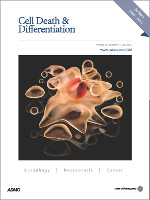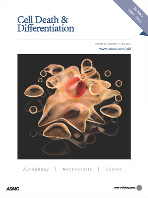 Researchers have retracted a biology paper that included an image mismatch — despite the fact that, as they claim, another image in the same paper confirms the original findings.
Researchers have retracted a biology paper that included an image mismatch — despite the fact that, as they claim, another image in the same paper confirms the original findings.
The authors say they plan to resubmit the paper with the corrected figure panel.
The second to last author — Carlo Croce, chair of the department of cancer biology and genetics at The Ohio State University — told us he believes there’s more to the retraction than what the notice says. Specifically, he said that the paper includes an image from a previous paper by the same authors, which he called “fraud.”
Here’s the latest retraction notice, published in Cell Death and Differentiation:
Continue reading Journal retracts paper due to image mismatch; one co-author alleges fraud





